- Home
- Tim Lebbon
Desolation Page 2
Desolation Read online
Page 2
“Did you give him a flat down here?”
“No, he died.” Peter stared at Cain, obviously expecting a reaction. But Cain was not surprised at the revelation. It hardly seemed important. People die, he thought, and his own lack of concern chilled him.
“So where’s my flat?” he asked, glancing up the staircase. The lobby and stairs were wide, bright, and airy. The walls had been decorated a pale yellow, and over time they had been scuffed and chipped from people walking up and down, apparently leaning against the wall for support. The vinyl flooring was the same color. Lovely, he thought.
“He was killed. They found him on Rich Common with half his stomach eaten.”
Cain frowned, shook his head, avoided Peter’s gaze. “How do they know it was eaten?”
“Sorry?”
“How do they know?”
Peter shrugged. “Teeth marks, I suppose.”
“Right,” Cain said. This fool was trying his best to be antagonistic. All Cain wanted right now was to see his room, make it his own for the future, unpack, lie down and spend his first night in . . . ages. Ages, he thought. It’s been ages since I slept free.
“Room five, attic room,” Peter said, suddenly bright and casual again. “Come on, I’ll give you a hand with that!” He grabbed for the chest handle, and for a second Cain was going to lash out. Leave me alone! he thought, but it made no sense, and by the time he realized that Peter had lifted the chest and started climbing. It thumped from tread to tread. The tapping Cain thought he heard in accompaniment must surely have been an echo.
“Come on!” Peter said, pausing on the sixth stair, looking down at Cain and smiling. “And don’t mind me. I’m a bit morbid at times. Watch too much shit on TV.” He laughed as he started up again.
Cain hefted his suitcase and carrier bags and followed his new landlord. “So who else lives here?” he asked.
“Ah yes,” Peter said, paused on the first floor landing. “I should have given you the tour. Oh well, maybe later. There are a few things I need to show you—laundry room in the basement, fire escape, alarm board, postboxes, that sort of stuff. But for now . . . well, who else lives here.” He looked at Cain and smiled again. Then he giggled.
“What is it?”
“Well, mate, you’re sharing a house with some odd folk, that’s for sure.”
Another fuckin’ weirdo, the kid had said. “Odd? How so?”
“Where to begin?” Peter said. “Follow me up and I’ll talk you through your new neighbors.”
Cain felt uncomfortable at the thought of Peter describing his neighbors out here on the stairs and landings. Any of them could be listening, and he did not want their opinions of him to be tainted by what their mutual landlord had to say. But no doors cracked open, no shadows revealed lurking residents, and he thought that maybe they were all out. At work, perhaps. Or wherever it was they went during the day. Freedom was not something Cain was used to, and he could not imagine anyone not taking full advantage of it.
“Ground floor,” Peter said, “Flat One. Sister Josephine. Don’t ask me if that’s her real name. Bit of all right beneath her habit, I reckon, but as I’ve never seen her not wearing it—never—I wouldn’t know. She thinks she’s a bit special.”
“What’s a nun doing living here?”
“Who said she’s a nun?”
“Well, her name . . .”
“Yeah, but I just said don’t ask.”
They walked along the first-floor landing, past two doors, heading for the flight of stairs to the second floor. The idea of inhabiting a dead man’s flat did not disturb Cain as much as it should. At least I’m out, he thought. Peter dropped the chest, glanced at his hand as if in pain, folded his arms and nodded at the closed doors.
“All strange,” he whispered. “It’s the number of the house attracts them. Number 13. Some streets don’t have it at all, you ever noticed that? Evens on one side, they’re fine, but odd numbers . . . seven, nine, eleven, fifteen . . . mad, eh? Surely number fifteen would really be thirteen, so it’d be just as fucked up?”
“I’ve heard some buildings miss out their thirteenth floor,” Cain said.
“Ah yes, but do they? Maybe the floors are all there, home to government agencies or alien corporations. Ever thought of that?”
“Not really,” Cain said, although he had read books containing that theory many times. He had no idea whether Peter was serious with any of this, or just testing him, dangling bait of various tastes and textures to see what he bit. Odd folk, thirteenth floor, a nun who may or may not be. The landlord seemed just as strange. His face was old before its time—he looked fifty, whereas Cain was certain he was no older than thirty-five—and the lines and crags in his skin hid true meaning like an abstract poem. It would need deciphering, concentration. Cain would need to know it.
“Well, don’t forget it,” Peter said. He laughed again. He seemed to do that a lot, although Cain had yet to hear true humor there. Perhaps after so long in the Home he had become inured against wit.
“So who’s here?” Cain asked. The door he had just passed held a number 4, while the one next to him held a vertical word Three, the T hanging askew from where a screw had popped free.
“Well, maybe we should get you to your room first,” Peter said, glancing at Flat Three, at Cain, then back at the door.
I’m too tired for this, Cain thought, too confused, too overawed. I need to sit in my new home and take out my book and read. He had read The Glamour a dozen times already, but he never tired of it, always found new messages hidden between chapters, beneath lines, behind paragraphs of exquisite prose and mysterious metaphor. On the surface the book was about invisibility, and Cain could relate. He felt so unseen by the world.
“Yes, maybe that is best,” Cain agreed. He moved past Peter and headed up the flight of stairs to his attic room.
“Oh!” Peter uttered behind him, but Cain had taken the lead. He reached a small landing with two doors leading off, one marked “Flat Five,” the other bearing only long, deep scratches for its entire height, as if something large and fearsome had tried to get through. Unnerved, he waited for the landlord to reach him.
“Flat Five,” Peter said as he reached the landing, panting with the effort of hauling the chest. “Cain! Not such an odd fellow, perhaps.” He laughed again as he took out a key and unlocked the door, dragging the chest through. He looked at it as if it could contain proof of all the lies he had so recently uttered.
Cain stood on the threshold for a few moments, unsure of what was about to happen. Was his life really starting afresh? Were all the bad times behind him? Would those memories—those torturous dreams of being hurt and alone—ever fade away to give him the peace he craved? He felt the lump of the pill bottle in his jacket pocket, and remembered the Voice’s secret smile as it had pressed them into his palm. Avoidance, Cain thought. I can go on avoiding the truth forever. But that doesn’t mean it isn’t always there, just as my father is always there. He hurt me, but he loved me. That’s what the Face and Voice said. I have to come to terms with the fact that he simply didn’t know what love was.
“Nice views,” he heard Peter say from somewhere in the flat. Cain stared down at the chest where it sat just inside the door. I’m in there already, he thought. I beat myself in.
“You can see the cathedral to the east, and north are the mountains outside the city. Wintertime, you can see snow on them from here.”
“This is my new home,” Cain whispered, not loud enough for Peter to hear. “I can do what I want in here.” He leaned through the door without setting foot inside, and rested his right hand on the chest. The wood felt warm, but that must have been the weather. “And I’ll never be alone again.”
“Cain?” Peter said, emerging from a room on the left. “You need a hand?”
Cain forced a smile, and then surprised himself by realizing that force was not required. “Please,” he said. “I don’t have much stuff, but sometimes it’s heavy.”
/>
“No problem.” Peter lifted one end of the chest and dragged it through the hallway. “I’ll put this in the living room.”
Cain entered his new home and closed the door behind him.
The hallway was large and bright, lit by a roof light. It was painted entirely white, and hung with contrasting black and gray landscape paintings, surreal, beautiful scenes of dead trees reaching ragged fingers for the viewer. The floor was a pale timber, scored here and there with deep scratches. Three doors led off from the hallway, and Cain was stunned at the scope of his new home. At Afresh he had lived in one room—bed, settee, books, small bathroom leading off to one side. Here, faced with three doors, he felt a sudden rush of panic. What if he got lost?
The second door on his left swung inward again and Peter peered out. “Like it?”
Cain could not speak. His throat felt hot and hard, and he was afraid that if he opened his mouth he would cry. He had cried a lot in his life, but he did not wish to shed tears in front of Peter. He could not say why. Perhaps now, alone in the world, he did not want to appear weak.
“I chose the pictures myself,” Peter said. “I love dead trees. They’re so filled with expression. It’s as if shedding their leaves opens them up to view. What do you think? Do you like dead trees?”
Cain glanced at one of the pictures and nodded.
“Forgive the scratches,” Peter continued, tapping the floor with one foot. “Vlad used to tear the tires from his wheelchair wheels just to make as much noise as he could.”
“Vlad?”
“The dead guy. An old Russian circus performer, so he said. Broke his back falling from the trapeze. Vicious, horrible bastard he was. Nickname.”
Cain wanted to explore his home, but something kept him motionless. He was a tree waiting to be swayed by a breeze, and the breeze was his own freedom. He had not yet fully grasped it. His father was still there in the background, a shadow standing beside him, holding him still and not for a second allowing him to bend. Pure Sight, a voice whispered, and it was not the Voice. It must have been his father muttering in his mind, come to haunt him now that there was a home to haunt.
But that was plain crazy.
He’s dead and gone, Cain thought, and behind one of the dead tree pictures he saw his own terrified reflection.
“So can I have the tour?” Cain asked.
“Absolutely! You’ll love this place, Cain, believe me. I’ve never been to Afresh, but I’ve been places similar. And not to belittle it, but . . . well, you’ll be free here. Never alone.”
Cain frowned at that—How does he know!?—but followed Peter through the door on the right.
“Bedroom. Big, bright, great views, it even has a small balcony facing out into the back garden.”
“It’s nice,” Cain said. And then he smiled at his understatement. Nice? It was luxurious. The bed was a large double, white sheets and duvet already folded back. The iron bedstead was glossy black, setting off the cream of the walls and carpet. The sloping ceiling was dotted with a dozen inset lights. One entire wall was composed of glass sliding doors, leading out onto a balcony with decorative wrought-iron railings and potted plants softening its harsh lines. Fine net curtains were held back from the windows by metal hooks, affording a view out onto the large back garden and the houses in the next street. The sun was just striking the windows, splashing the floor and already moving in toward the bed.
“It’s fantastic,” Cain said.
Peter shrugged. “Thanks. New carpet. Vlad wore out the old one. There’s a TV in the cupboard there, remote’s on the bedside table.”
“Where’s the bathroom?”
“En suite. Let me show you.”
The bathroom was small but perfect, containing a shower stall as well as a bath and lit, like the hallway, by a roof light.
Peter took Cain back through the hall and into the living room. This was furnished with various pieces of new furniture, none of it exceptionally expensive but all tasteful and functional. The kitchen was open plan, separated from view by a flowering plant climbing a network of stainless-steel wires. The units were glass-fronted, displaying a whole range of cooking and eating utensils, and one cupboard contained a welcome pack of food: tea bags, biscuits, bread, sugar, rice, pasta, some jars of sauce. A door led out to the hallway. And there were more paintings, this time stark representations of animals set against muddy brown backgrounds. Nothing detailed or intricate, just a few white brush strokes revealing enough form and shape to identify. It took Cain until the third painting to realize that they were all depictions of extinct animals.
The living space was large enough to accommodate a dining suite as well, which sat below the wide dormer window facing the street. The walls held yet more paintings, but if they were by the same artist as the others, he or she was extremely adaptable. These images were more abstract, mostly constructed of many-angled shapes interconnecting or hovering within a hairsbreadth of touching, all of them black-and-white.
Through the large window Cain saw the cathedral as promised, and in the distance he could make out the mountain between office blocks and chimneys. He would sit here and eat breakfast, letting the early-morning sun stream in to keep his toast warm. Perhaps the window would be open, letting in birdsong from where birds would roost on the roof around him. He would be alone, but alone with his new life. At Afresh he was never really alone, but he had felt empty and useless. Here, free, he would be able to revel in his own company.
The dreams, he thought, the dreams might still be there. But he would face them. Standing in his new living room, he promised himself that he would not take a sleeping pill tonight. The Voice had given them to help, but now it was time for Cain to help himself. He had spent far too long since his father’s death relying on other people to take care of him.
“It’s wonderful,” he said. “I never expected it to be like this.”
“Well, I admit the outside is a bit of a mess,” Peter said.
“No, no, I just never thought I’d have somewhere like this. Live somewhere wonderful like this. Such a blank canvas.” Cain trailed off, aware that he sounded like a child in a toy shop.
“I’ve done a lot of work on it,” Peter said. “Vlad left it in a hell of a shape. Contentious old bastard.”
“How did he live here?”
“Sorry?”
“How did he survive? The stairs? The cupboards on the wall in the kitchen? The shower? You said he had a wheelchair.”
For a second—an instant so brief that Cain may have imagined it between blinks—Peter seemed enraged. But then he smiled that humorless smile again and shrugged.
“Well, I helped him. He paid me. Up the stairs, down the stairs. He could stand, just, when he really wanted to, and in time he may have been able to journey up on his own. But most of the time he chose to stay in the chair. He was . . . awkward.”
“Eaten, you say?”
Peter raised his eyebrows. “So it’s said. Strange . . . they never even found his wheelchair.”
Cain walked back through to his bedroom, opened the sliding doors, and stood on the balcony. He glanced down into the garden, hoping to see some of the other residents down there, but it was home only to insects, birds, and bees. The garden itself was somewhat wild, but weeds were kept down and paths and paved areas were well maintained. It looked like a place where he could be at peace. Sit and read. Enjoy being alive. Even at Afresh that was something he had never done.
“I like it,” he said.
Peter had followed him through and was standing at his back. “Good. I’m pleased. And I’m glad my talk of Vlad didn’t put you off. And anyway, it’s not as if he actually died here.”
Cain turned around. “It wouldn’t have bothered me if he had.”
Peter’s smile faltered just for an instant, and Cain was pleased. You’re your own man now, the Voice had said. Time to make your mark on the world.
Peter left him the front door key and a phone number to call if t
here were problems. And when the landlord closed the door behind him, Cain ran from room to room, in and out, kitchen living room hallway bedroom bathroom, back again, filling the flat with himself so that it came to know him.
He opened the dormer window above the dining table and, leaning out, watched Peter cross the street. The landlord stood on the pavement for a few seconds, chatting with two children who may or may not have been the ones from earlier. And then he walked into the unkempt garden of the house named Heaven, prized the corrugated iron front door to one side, and vanished within.
Cain went to the shops. There were a lot of things he needed, and he had the money that Afresh had given him to start out on his own. There was a bank account, his father’s money sitting there waiting to be claimed—he had not died a poor man—but for now, Cain did not wish to dwell on such affairs. He had a new life to find first. Then he could pick up the loose ends of his past, confront them, and end them.
He did not see anyone on his way downstairs. He passed by Flat One, wondering whether Sister Josephine was praying in there even now. He had passed Flats Two, Three, and Four with no idea of who was inside, and after Peter’s allusion that every occupant was odd, Cain found the silence strangely loaded. There were peepholes in each door, and he wondered who was watching him pass by, the lens distorting him into someone new. Perhaps he would knock on Heaven’s door on the way back from the shops, ask Peter the truth.
He left the house.
The front garden fell silent to mark his passing, whether in reverence or disdain Cain could not tell. Probably neither, though ignorance was worse. As he closed the gate the spiky bushes rustled, the bees began to hum, and he was back in Endless Crescent again. The vandalized sign now read wrong; he was not Nowhere. For the first time in his life, he was somewhere he truly wanted to be.
He bought a bottle of wine, an Indian takeaway meal, and a packet of fruit jellies. He planned an evening of indulgence to mark the start of his new life. He felt that was more positive than celebrating the end of the past.

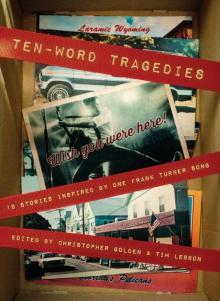 Ten-Word Tragedies
Ten-Word Tragedies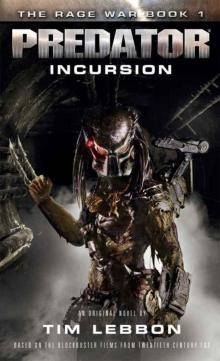 Predator: Incursion
Predator: Incursion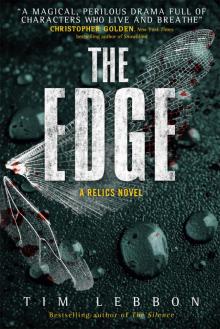 Relics--The Edge
Relics--The Edge Firefly
Firefly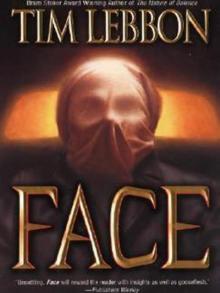 Face
Face Generations
Generations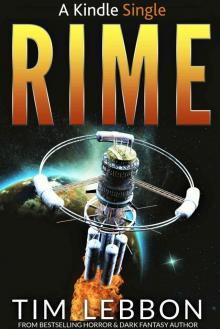 RIME (Kindle Single)
RIME (Kindle Single) Fallen
Fallen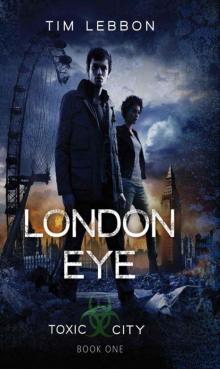 London Eye tc-1
London Eye tc-1 Kong: Skull Island
Kong: Skull Island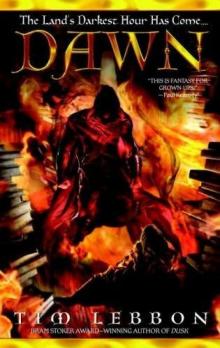 Dawn n-2
Dawn n-2 Into the Void: Star Wars (Dawn of the Jedi)
Into the Void: Star Wars (Dawn of the Jedi)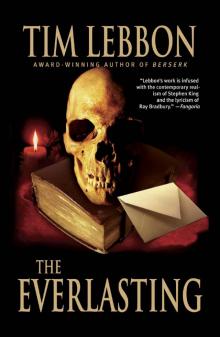 The Everlasting
The Everlasting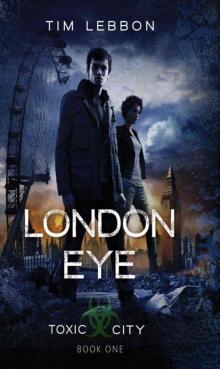 London Eye: 1 (Toxic City)
London Eye: 1 (Toxic City)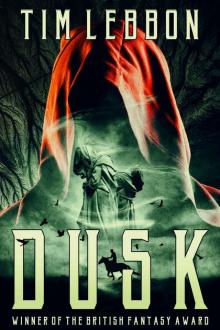 Dusk: a dark fantasy novel (A Noreela novel)
Dusk: a dark fantasy novel (A Noreela novel)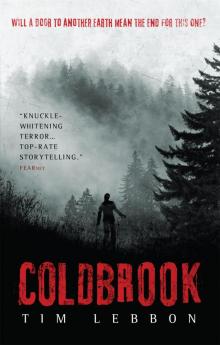 Coldbrook
Coldbrook Alien
Alien Dusk
Dusk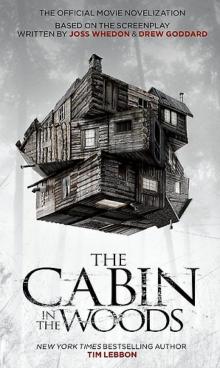 The Cabin in the Woods
The Cabin in the Woods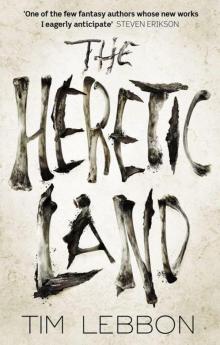 The Heretic Land
The Heretic Land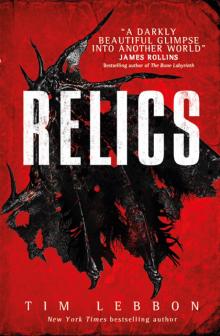 Relics
Relics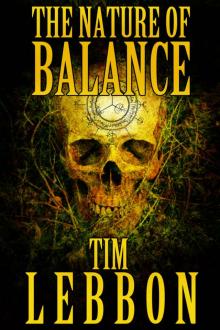 The Nature of Balance
The Nature of Balance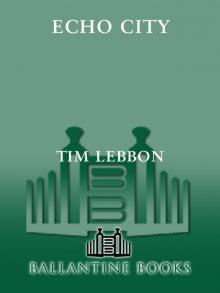 Echo City
Echo City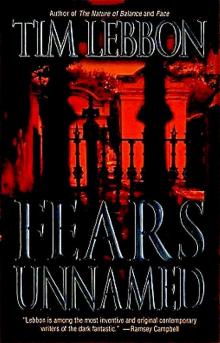 Tim Lebbon - Fears Unnamed
Tim Lebbon - Fears Unnamed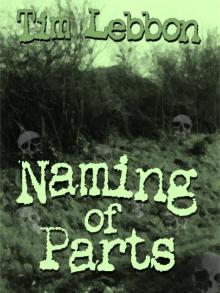 Naming of Parts
Naming of Parts Alien--Invasion
Alien--Invasion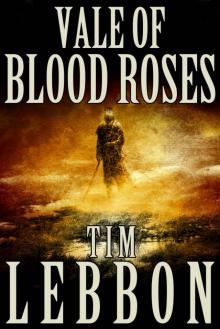 Vale of Blood Roses
Vale of Blood Roses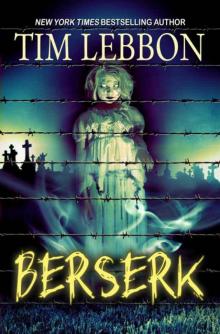 Berserk
Berserk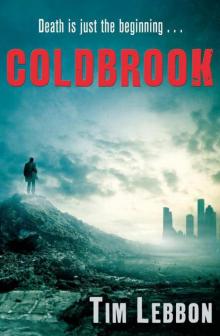 Coldbrook (Hammer)
Coldbrook (Hammer)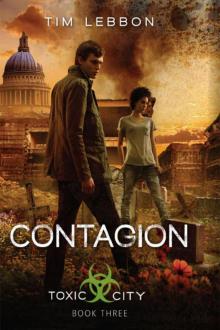 Contagion tc-3
Contagion tc-3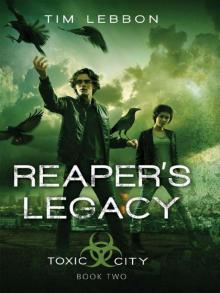 Reaper's Legacy: Book Two (Toxic City)
Reaper's Legacy: Book Two (Toxic City)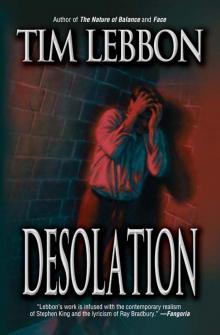 Desolation
Desolation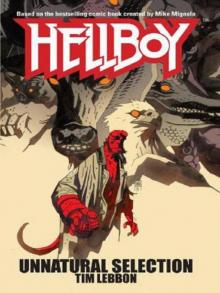 Unnatural Selection
Unnatural Selection Predator - Incursion
Predator - Incursion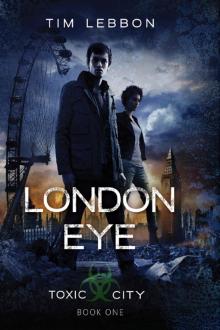 London Eye
London Eye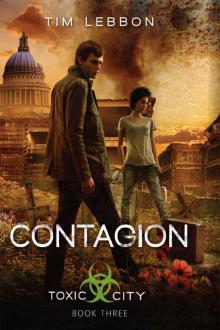 Contagion (Toxic City Book Three)
Contagion (Toxic City Book Three) The Silence
The Silence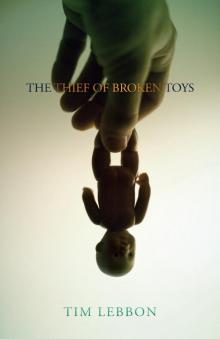 The Thief of Broken Toys
The Thief of Broken Toys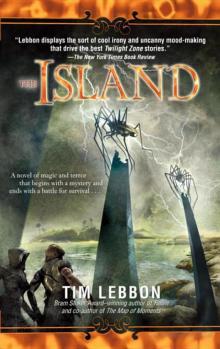 Tales of Noreela 04: The Island
Tales of Noreela 04: The Island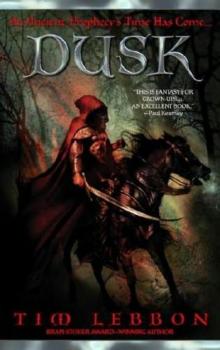 Dusk n-1
Dusk n-1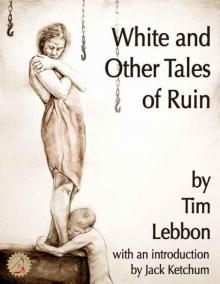 White and Other Tales of Ruin
White and Other Tales of Ruin A Whisper of Southern Lights
A Whisper of Southern Lights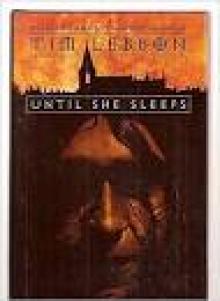 Until She Sleeps
Until She Sleeps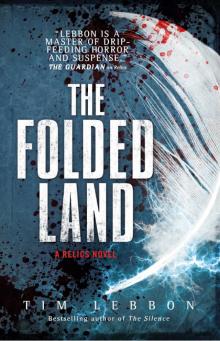 Relics--The Folded Land
Relics--The Folded Land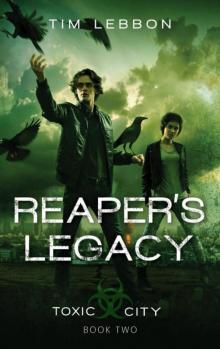 Reaper's Legacy tc-2
Reaper's Legacy tc-2 Alien: Out of the Shadows
Alien: Out of the Shadows Pieces of Hate
Pieces of Hate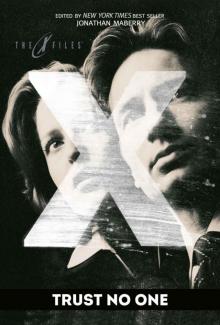 X-Files: Trust No One
X-Files: Trust No One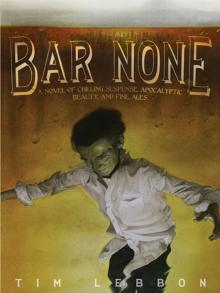 Bar None
Bar None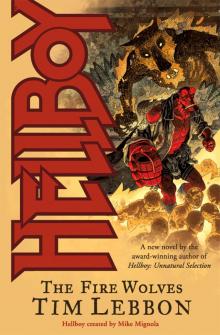 The Fire Wolves
The Fire Wolves